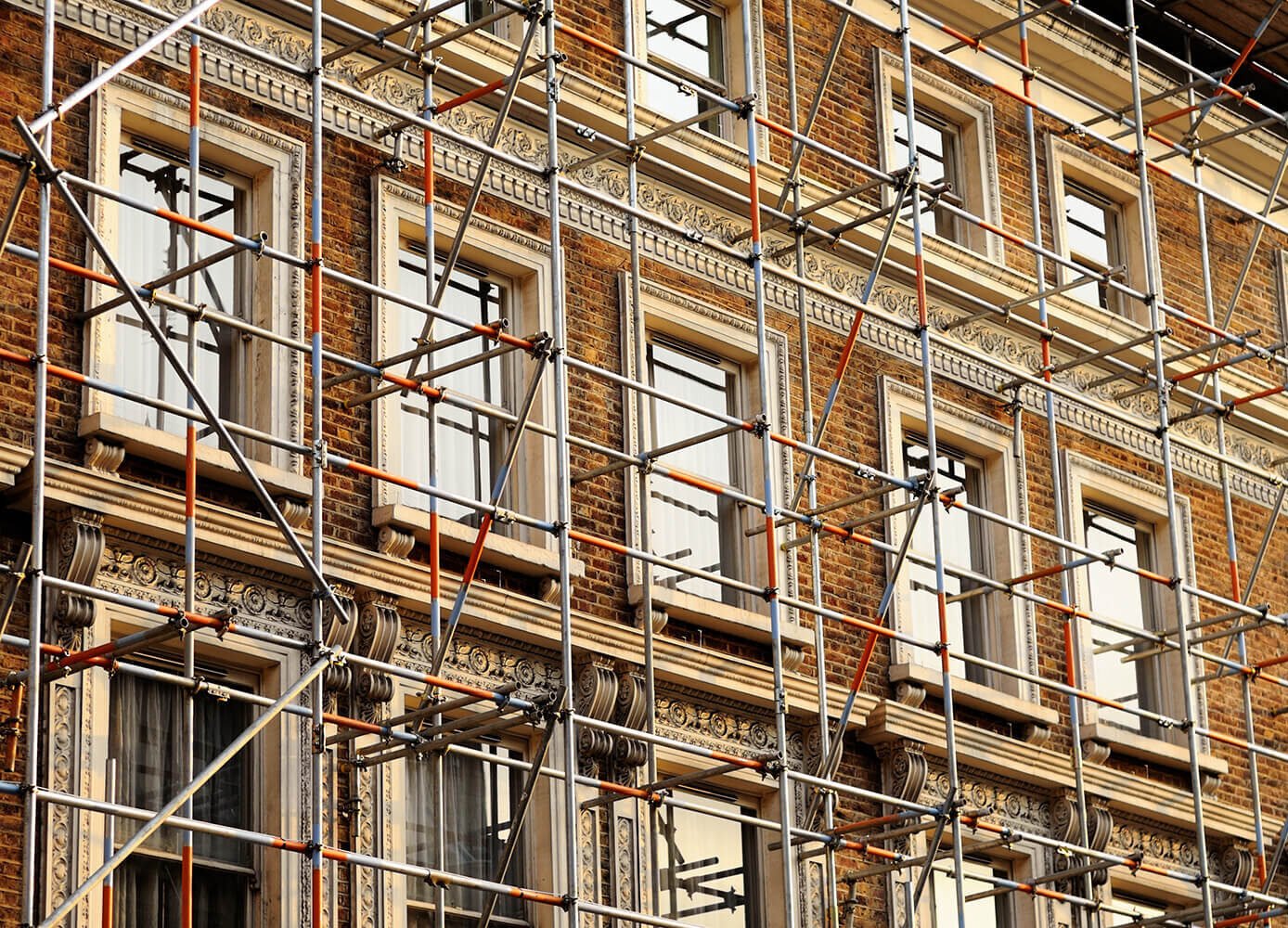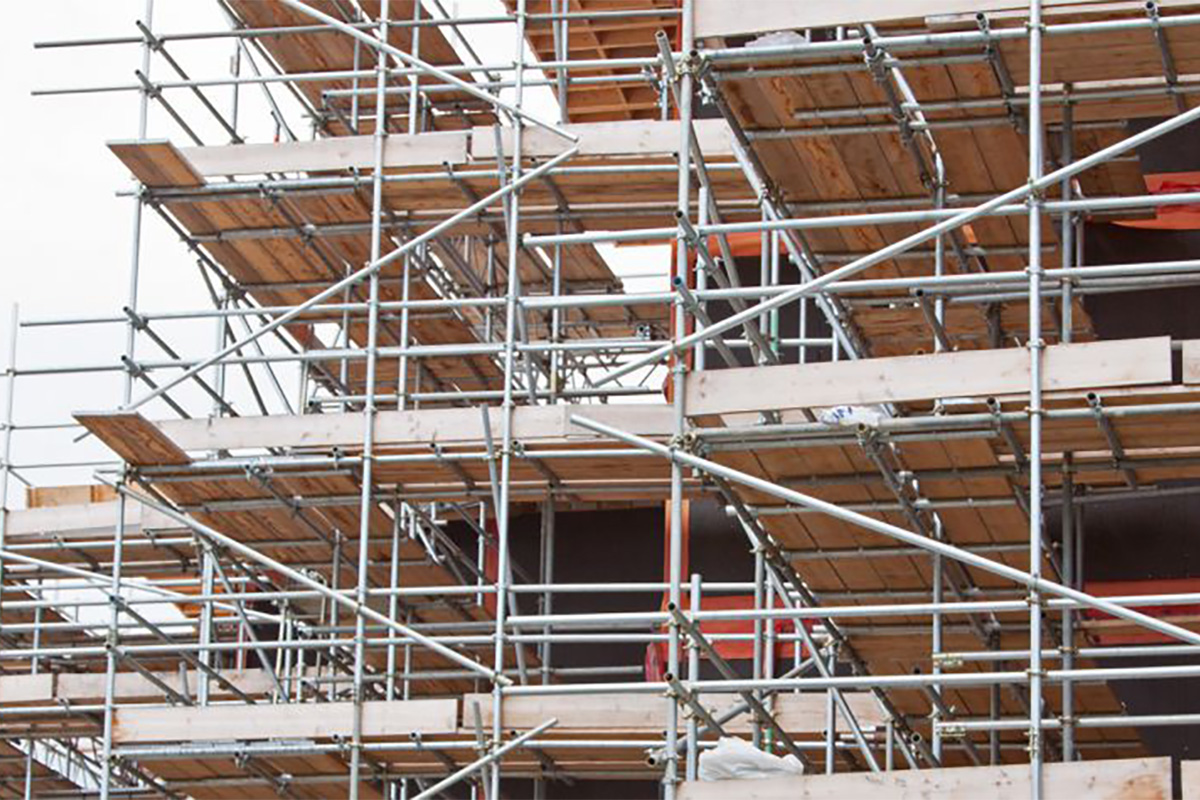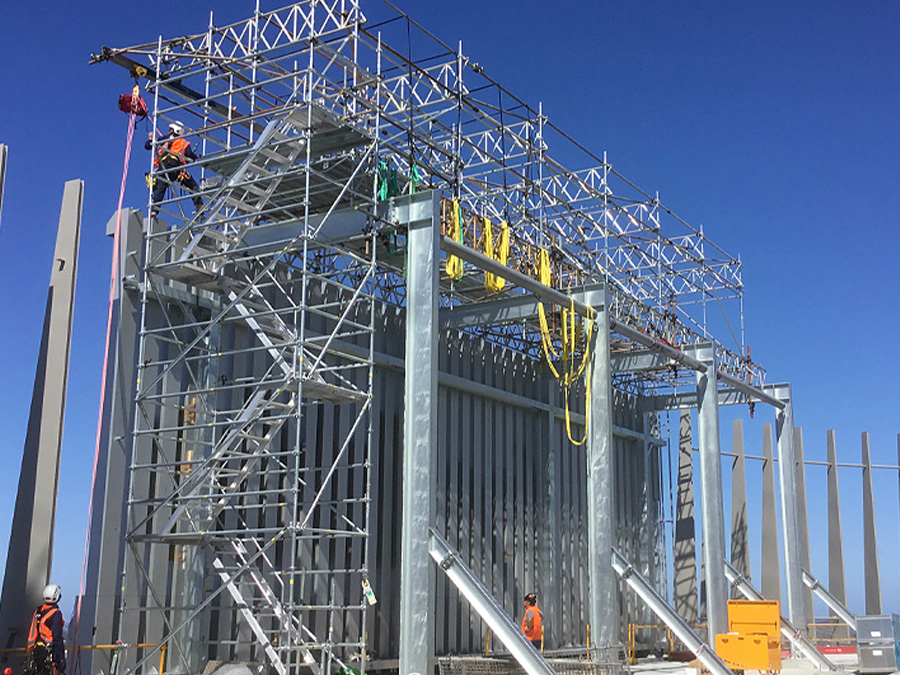Scaffolding Guildford: The Best Option for Your Building and Renovation Projects
Exploring the Various Kinds Of Scaffolding Utilized in Building And Construction Projects
The building market counts greatly on numerous kinds of scaffolding to satisfy specific job requirements, each offering distinctive advantages and applications. Typical framework scaffolding provides a strong foundation for general jobs, while suspended scaffolding is essential for deal with high-rise structures. Various other choices, such as system and rolling scaffolding, provide to efficiency and flexibility, respectively. The cantilever variant verifies invaluable in metropolitan environments where area is constricted. Recognizing the nuances of these scaffolding kinds is crucial for maximizing safety and security and efficiency on building and construction websites, triggering a more detailed evaluation of their special characteristics and applications.

Standard Framework Scaffolding
Traditional structure scaffolding is among the most extensively used methods in the building and construction market as a result of its robustness and flexibility. This system includes upright and straight frames that are put together to create a secure system for products and employees. The major elements include vertical blog posts, horizontal journals, and diagonal braces, which with each other supply a solid framework that can sustain considerable lots.
Among the key advantages of standard structure scaffolding is its adaptability to different building and construction projects, ranging from domestic structures to huge business frameworks. The modular layout permits easy assembly and disassembly, making it effective for both temporary and lasting tasks. In addition, the system can be customized in height and width, accommodating various structure layouts and website problems.
Safety is paramount in scaffolding applications, and standard framework systems are equipped with guardrails and toe boards to stop falls and make sure employee security. Routine assessments and adherence to security policies are essential in maintaining the honesty of the scaffold (Scaffolding). On the whole, standard frame scaffolding stays an essential option in the construction sector, supplying a trusted system for labor and improving overall task effectiveness

Suspended Scaffolding
Suspended scaffolding supplies a distinct solution for building tasks that require accessibility to raised surfaces, especially in scenarios where conventional structure scaffolding may be unwise. This sort of scaffolding is generally put on hold from the roof covering or upper levels of a framework, making use of a system of platforms, pulley-blocks, and ropes to produce a working area that can be adapted to numerous heights.
Among the primary advantages of suspended scaffolding is its adaptability. It can be conveniently rearranged or lowered to suit changes in building demands, making it perfect for tasks such as window setup, façade job, and upkeep on skyscrapers. In addition, the marginal impact of put on hold scaffolding permits for better use ground space in urban environments, where space is typically restricted.
Safety and security is a vital consideration in the use of suspended scaffolding. Overall, put on hold scaffolding supplies a efficient and efficient solution for accessing hard-to-reach areas in different building situations, enhancing both productivity and security on website.
System Scaffolding
System scaffolding, frequently considered as a modern remedy in the scaffolding market, includes pre-engineered elements that can be quickly constructed and adapted for various construction jobs. Scaffolding. This click here to find out more kind of scaffolding is identified by its modular design, which permits flexibility and performance on job websites, accommodating various heights and structural needs
Typically made from high-strength steel or light weight aluminum, system scaffolding offers improved durability and stability. The parts include vertical blog posts, horizontal you can check here ledgers, and angled dental braces, which interconnect safely, making certain a robust framework. The style usually includes standardized fittings, streamlining setting up and disassembly procedures, therefore lowering labor time and costs.

Rolling Scaffolding
Moving scaffolding is a versatile alternative to typical fixed scaffolding, designed for flexibility and convenience of use on building and construction websites. This type of scaffolding includes a platform sustained by frameworks with wheels, allowing employees to quickly transfer it as required. The movement attribute substantially enhances performance, as it reduces downtime connected with disassembling and setting up repaired scaffolding.
Typically built from light-weight materials such as light weight aluminum or steel, rolling scaffolding offers a durable yet portable remedy for tasks calling for frequent repositioning - Scaffolding. It is particularly useful in tasks such as painting, drywall installment, and electrical work, where accessibility to various heights and areas is necessary
Security is extremely important in rolling scaffolding design, with functions such as securing wheels to stop unplanned movement when in operation, and guardrails to secure workers from falls. Furthermore, many designs are flexible in elevation, accommodating different job needs.
Cantilever Scaffolding

The layout of cantilever scaffolding normally includes making use of arms or brackets secured to a building or structure, allowing the system to expand exterior safely. Security is vital; thus, these scaffolds have to be engineered to withstand ecological conditions and different loads. Routine inspection and upkeep are necessary to ensure architectural integrity and worker safety and security.
Cantilever scaffolding is favored for its convenience and effective use space, making it a prominent selection in metropolitan settings where space restrictions prevail. Furthermore, it assists in easier access to high altitudes, inevitably contributing to the general performance of construction jobs. As with all scaffolding types, appropriate training and adherence to safety and security standards are vital for employees making use of cantilever scaffolding.
Verdict
In conclusion, the diverse sorts of scaffolding used in building and construction tasks each offer distinct purposes customized to certain website needs. Traditional frame scaffolding supplies security, while put on hold scaffolding offers versatility for elevated tasks. System scaffolding helps with quick assembly, and rolling scaffolding enhances mobility for varying workplace. Cantilever scaffolding effectively addresses obstacles in urban setups. Recognizing these scaffolding types is necessary for maximizing security and efficiency in construction, ultimately adding to the effective conclusion of jobs.
Traditional structure scaffolding supplies a durable foundation for basic tasks, while put on hold scaffolding is necessary for work on skyscraper frameworks.Rolling scaffolding is a functional option to conventional set scaffolding, created for movement and ease of usage on building websites. As with all scaffolding types, correct training and adherence to security standards are essential for workers making use of cantilever scaffolding.
Standard framework scaffolding provides stability, while put on hold scaffolding uses versatility for elevated tasks. System scaffolding facilitates quick setting up, and rolling scaffolding improves wheelchair for differing job settings.